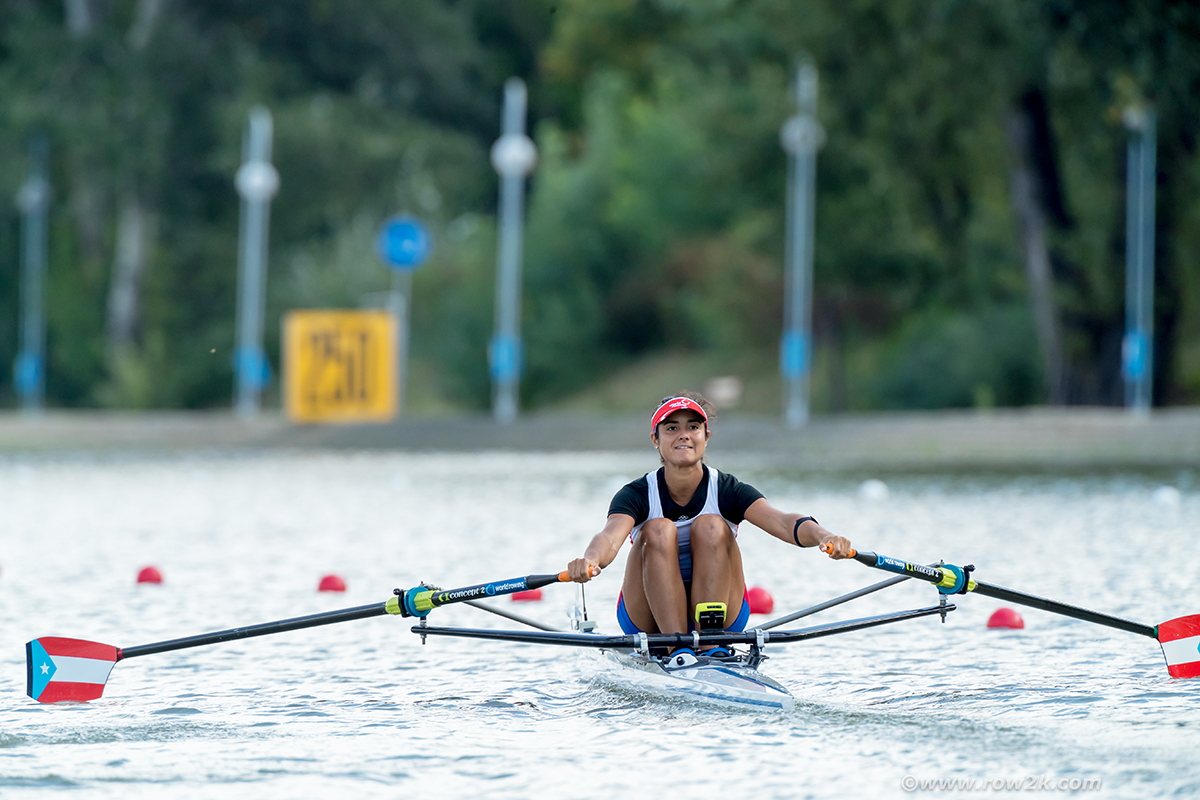From Rowing on the Charles to Rowing for Puerto Rico
-
-
Slice of MIT
Filed Under
Recommended

Having grown up in Puerto Rico, Veronica Toro ’16 was drawn to MIT’s proximity to the water. She arrived on campus intending to pursue sailing but never made it onto a sailboat. The day she showed up at the boathouse, she discovered rowing instead—and it changed her life.
“I’d literally never heard of rowing before,” says Toro, who recently became the first Puerto Rican female to qualify for the Pan American Games. As a first-year student at MIT, Toro joined the rowing team and excelled from the start. During winter break, she met up with the Puerto Rican Rowing Federation back home and discovered that within a sport that is generally not prevalent there, female athletes are especially rare. She decided to spend the next summer training with the organization.
There was something special to me about having the opportunity to represent Puerto Rico, and I had to take it.
“Sports are one of the things that make Puerto Ricans the most patriotic,” says Toro. “We aren’t really a country, we aren’t really a state—a lot of people are actually surprised that we have our own Olympic team, but that’s one of the few things that we have that’s our own. There was something special to me about having the opportunity to represent Puerto Rico, and I had to take it.”
Toro continued rowing for MIT in an eight-person boat, and in a single boat started competing internationally for Puerto Rico. “I would train with the MIT team in the morning and then on my own in the afternoons,” she says. “It was a lot of work, and I was trying to get into medical school so I had to keep my grades really high, but it was something that I loved, so I gave it a shot.” She was a starter on the MIT women’s openweight crew varsity eight team for three years, helping the Engineers advance to the grand final of the Patriot League Championship her junior and senior year. Toro also became the first rower in MIT history to receive a National Collegiate Athletic Association Postgraduate Scholarship, a grant given to students who excel both athletically and academically.
Individually, her first competitive race was the qualifier for the Pan American Games in 2014, missing by only two spots. During her senior year, she fell one spot short of qualifying for the Rio 2016 Summer Olympics. “That’s when I realized that going to the Olympics wasn’t that crazy an idea,” says Toro, who opted to attend Stanford Medical School—where she has completed two years—in large part because its coastal location meant she could train year-round.
Toro has represented Puerto Rico in three World Rowing Championships, two Central America and Caribbean Games, one Central America and Caribbean Cup, two Pan American Games qualifiers, and one Continental Olympic qualifier. She was named rowing athlete of the year for Puerto Rico in 2014, 2015, 2016, and 2018.
Now, although she has qualified for the 2019 Pan American Games—the biggest international sports event for the Americas and the best opportunity she will have to measure herself against her competitors for the Olympic Qualification Regatta—she faces several hurdles before she can attend. Given the island’s financial crisis, made worse by Hurricane Maria in 2017, the Puerto Rican Olympic Committee lacks sufficient funds to send all of its qualifying athletes to that critical competition. Toro must first earn the committee’s support by placing better than her competitors from the Americas at additional international races, and must independently raise funds to cover the cost of the extra events.
Currently, Toro is living in Miami and working full-time with a high-performance coach to put her Olympic dreams within reach. She is maintaining her standing as a med student on a fellowship by remotely conducting research for Stanford’s Cardiovascular Biomechanics Computational Lab, with plans to resume her studies in California in fall 2020.
The balance is hard, Toro admits, but pride in where she comes from continues to inspire her.
“At MIT, I loved rowing as a team,” she says. “You have to do exactly what the people behind you and in front of you are doing; that’s the only way to make the boat go faster. You know your teammates are working as hard as they can, so you want to give it your all.” She adds, “I’m still super-motivated, but the motivation’s different. The motivation is to be able to represent my flag.”
Photo: row2k.com.







